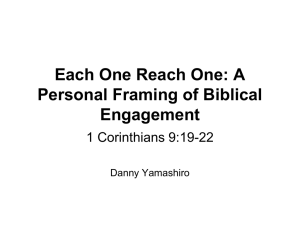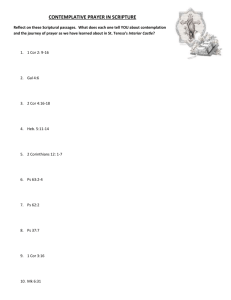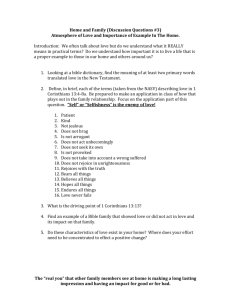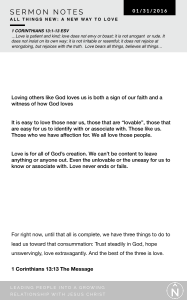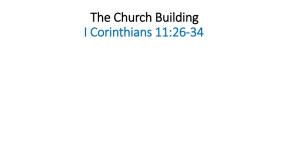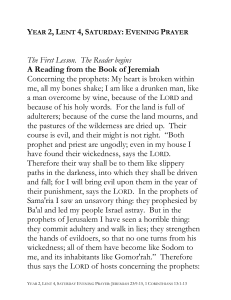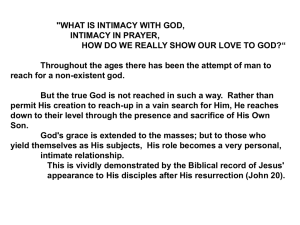The Greatest of These is Love
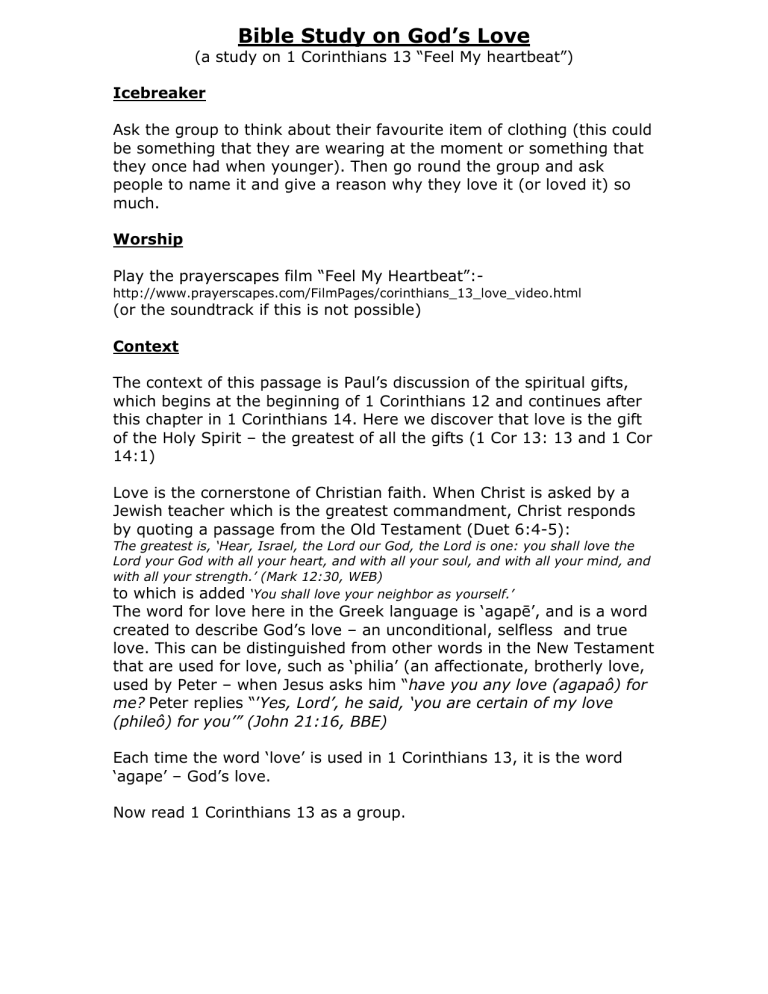
Bible Study on God’s Love
(a study on 1 Corinthians 13 “Feel My heartbeat”)
Icebreaker
Ask the group to think about their favourite item of clothing (this could be something that they are wearing at the moment or something that they once had when younger). Then go round the group and ask people to name it and give a reason why they love it (or loved it) so much.
Worship
Play the prayerscapes film “Feel My Heartbeat”:- http://www.prayerscapes.com/FilmPages/corinthians_13_love_video.html
(or the soundtrack if this is not possible)
Context
The context of this passage is Paul’s discussion of the spiritual gifts, which begins at the beginning of 1 Corinthians 12 and continues after this chapter in 1 Corinthians 14. Here we discover that love is the gift of the Holy Spirit – the greatest of all the gifts (1 Cor 13: 13 and 1 Cor
14:1)
Love is the cornerstone of Christian faith. When Christ is asked by a
Jewish teacher which is the greatest commandment, Christ responds by quoting a passage from the Old Testament (Duet 6:4-5):
The greatest is, ‘Hear, Israel, the Lord our God, the Lord is one: you shall love the
Lord your God with all your heart, and with all your soul, and with all your mind, and with all your strength.’ (Mark 12:30, WEB) to which is added ‘You shall love your neighbor as yourself.’
The word for love here in the Greek language is ‘agapē’, and is a word created to describe God’s love – an unconditional, selfless and true love. This can be distinguished from other words in the New Testament that are used for love, such as ‘philia’ (an affectionate, brotherly love, used by Peter – when Jesus asks him “have you any love (agapaô) for me?
Peter replies “’Yes, Lord’, he said, ‘you are certain of my love
(phileô) for you’” (John 21:16, BBE)
Each time the word ‘love’ is used in 1 Corinthians 13, it is the word
‘agape’ – God’s love.
Now read 1 Corinthians 13 as a group.
Questions
1.
Verses 4 to 6 in this chapter list a series of things that agape is and is not. Ask the group to create two lists – a list of things that
God’s love is, and is not.
At the end of this exercise, your list should look similar to this:-
Love IS patient kind happy with the truth protective persevering trusting hoping
Love IS NOT
Envious
Boastful
Proud
Dishonouring of others
Self-seeking
Easily angered
A record keeper of wrongs
Happy with evil
2.
Now go round the group and ask for one attribute that each person would like more of (and why) from the “Love IS” list
3.
In the letter of James we are encouraged to:
“…confess your sins to each other and pray for each other so that you may be healed. The prayer of a righteous person is powerful and effective” (James 5:16,
NIV)
Invite the group to name one thing that they would like to change about themselves in the second list, and if it seems appropriate, pray as a group for each other to receive God’s strength and love to be able to handle these issues.
4. Read 1 Cor 13:8 -
“Love never fails. Everyone who prophesies will stop, and unknown languages will
no longer be spoken. All that we know will be forgotten”. 1 Cor 13:8, CEV).
Jesus said “Love your neighbour as yourself” – in order to love others we also need to extend love to ourselves, and all this is born out of a realisation of how much God loves us, and never gives up on his love - regardless of what we may say or do or become.
Now ask the group to meditate on the three words “love never fails”
This is God’s love – as you think about this line recall ways in which
God has never given up on you in your life.
Response
If you have the instrumental version of “Feel My Heartbeat”, you can play the track now, and allow a couple of minutes for silent prayer and reflection.
Then close with prayer, thanking God for your time together and
His amazing and inspiring gift of love.
Neil Haydock http://www.prayerscapes.com

